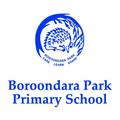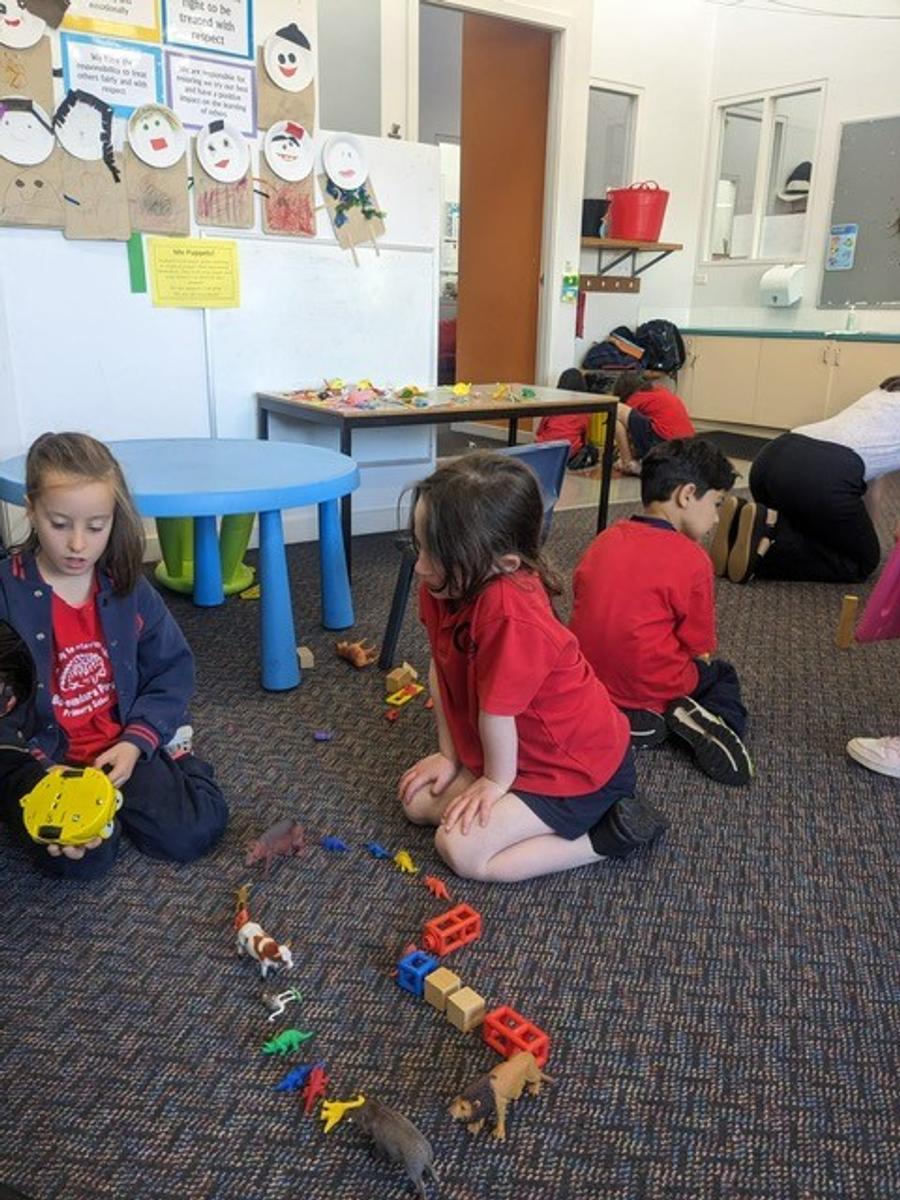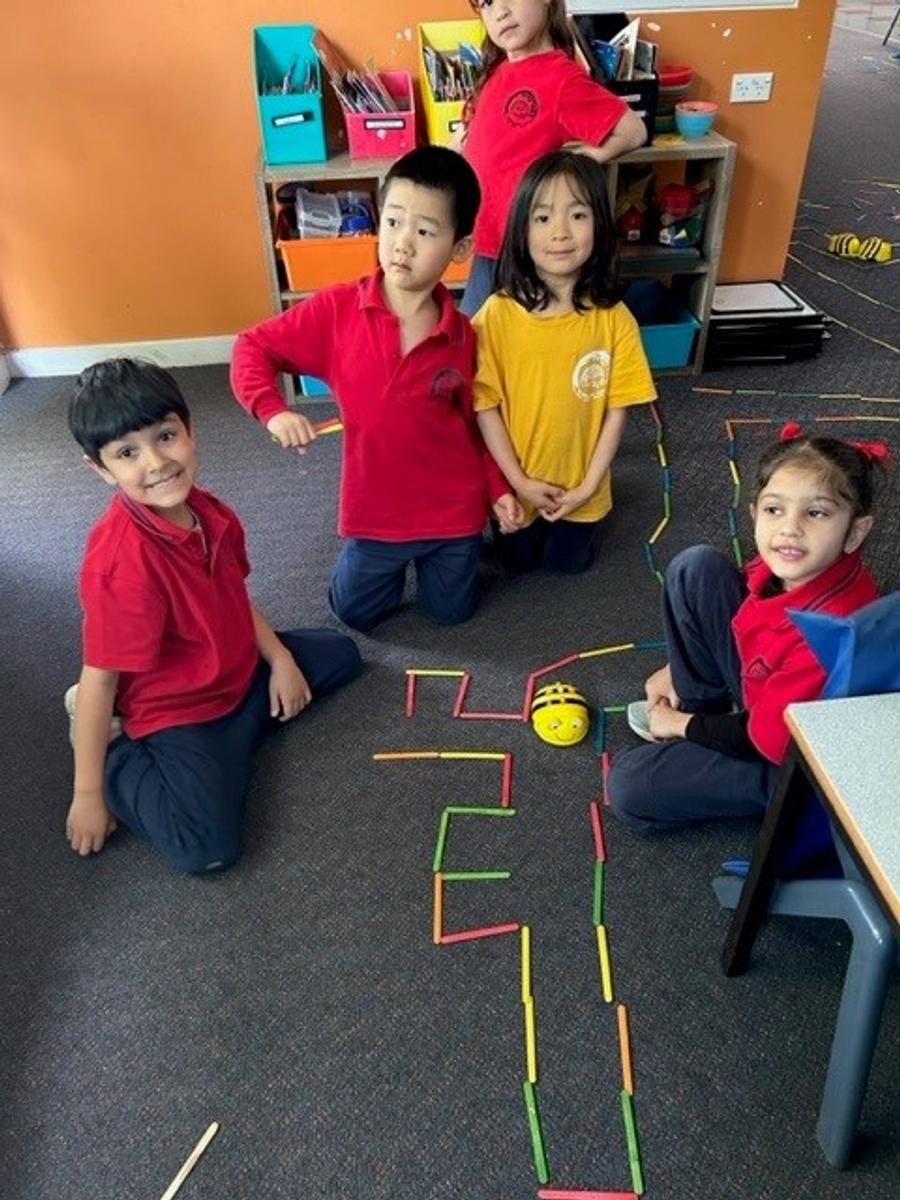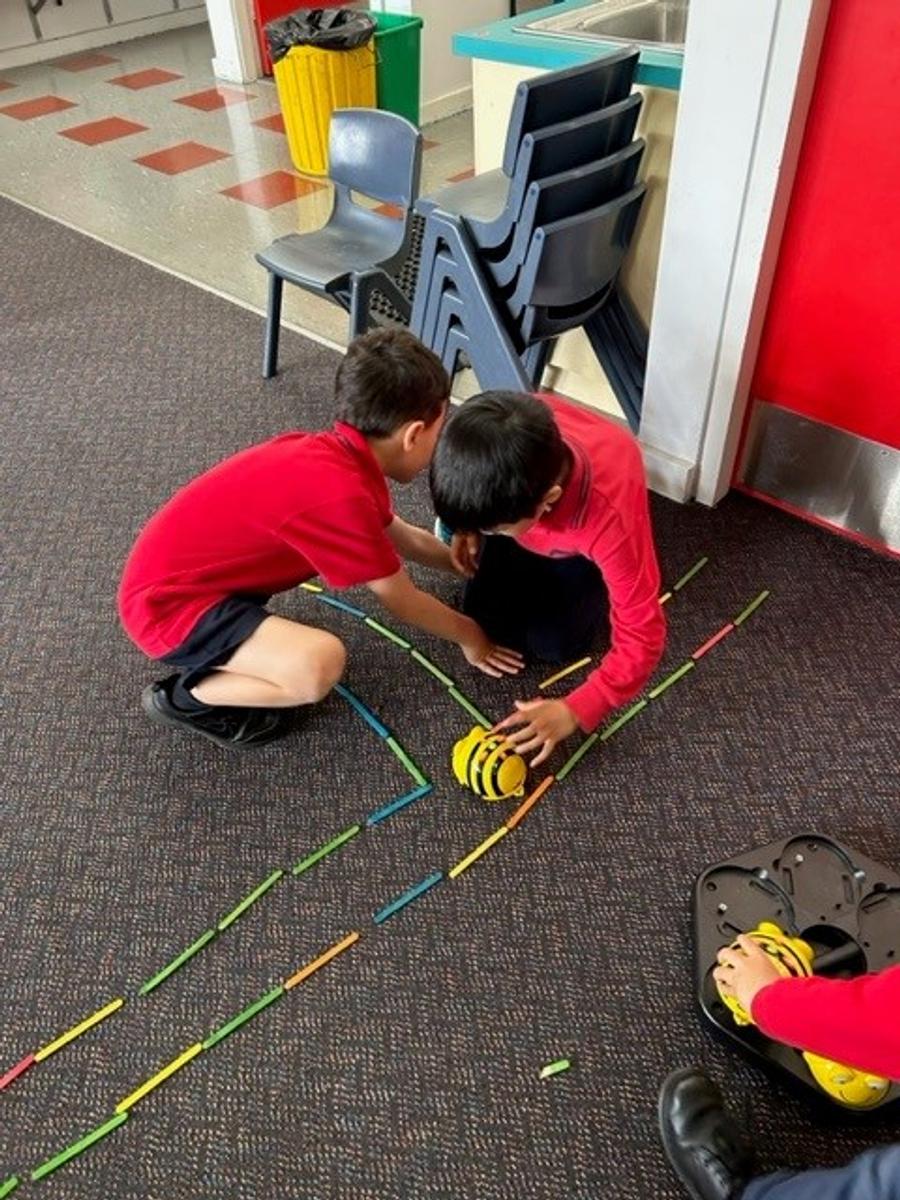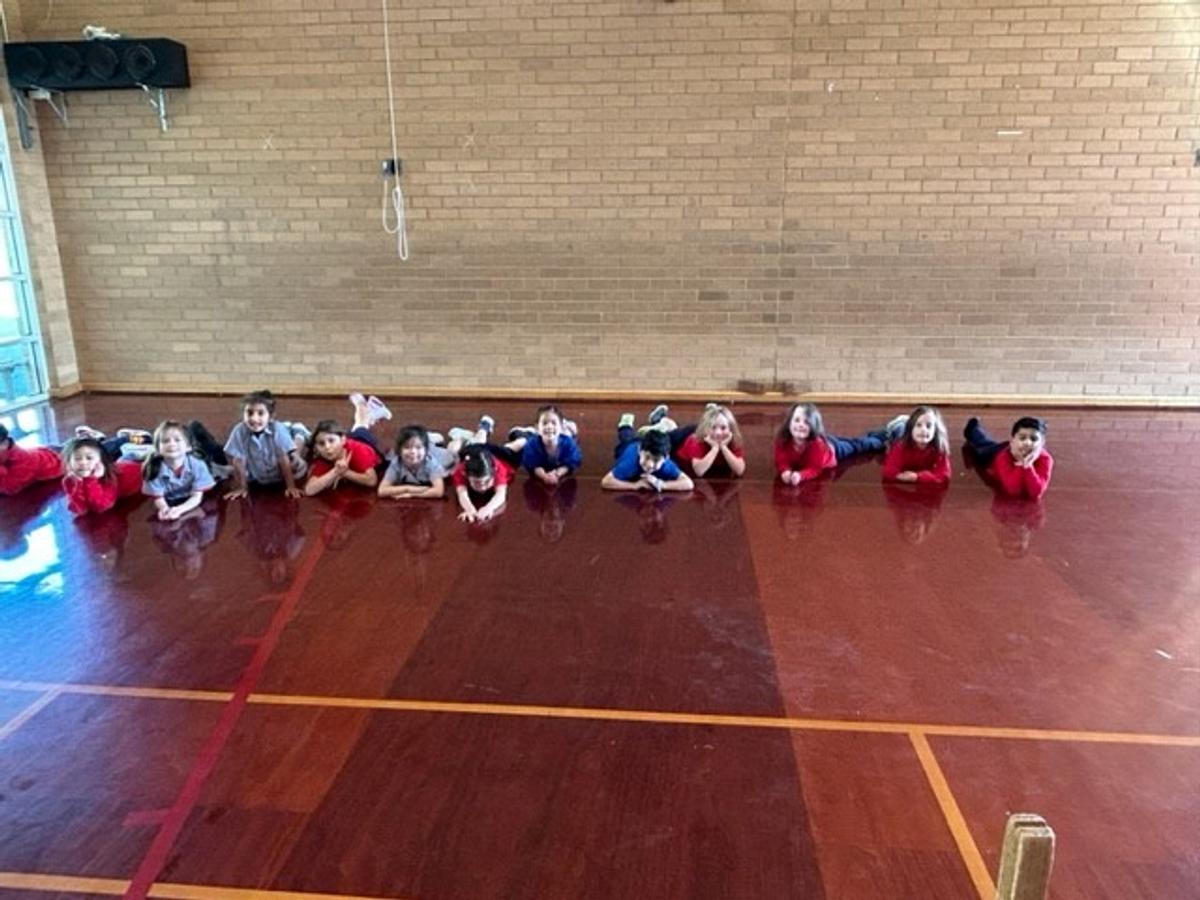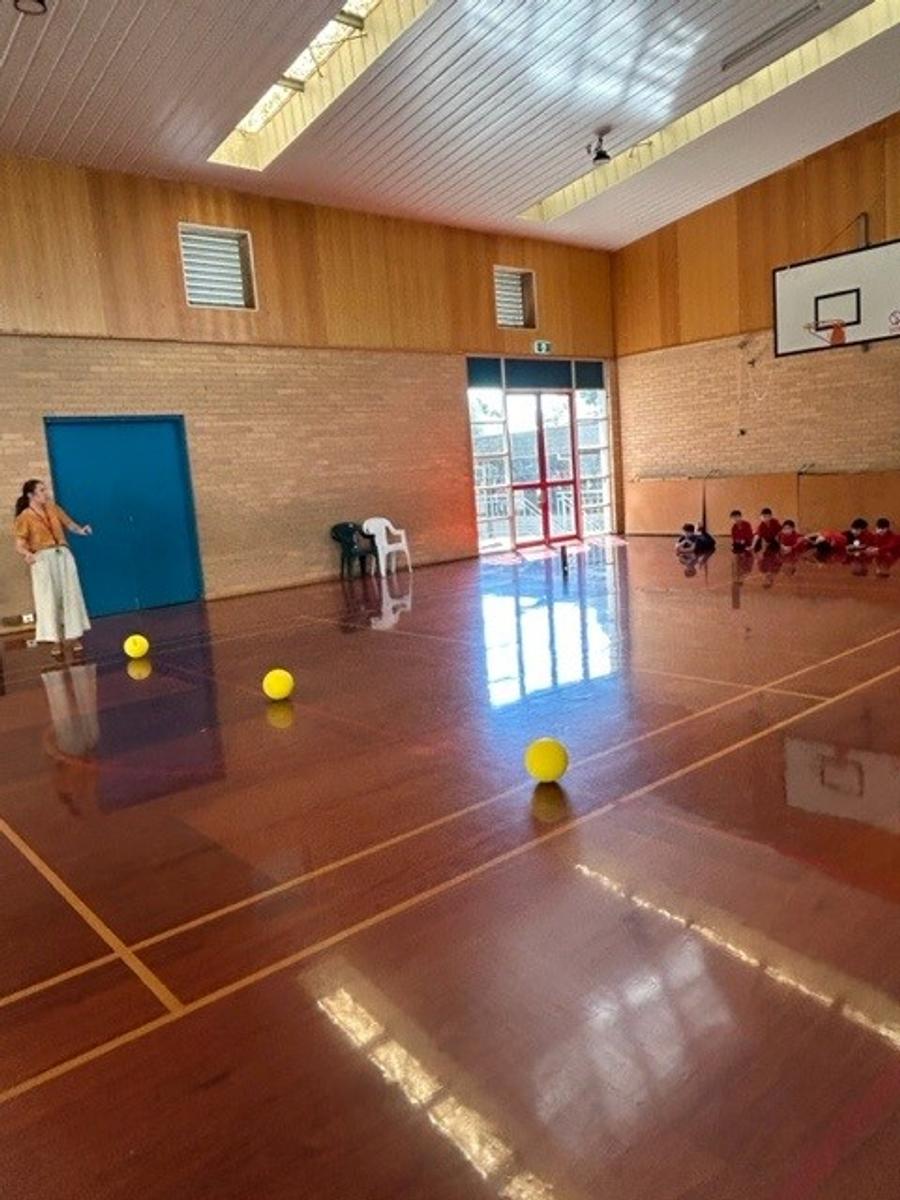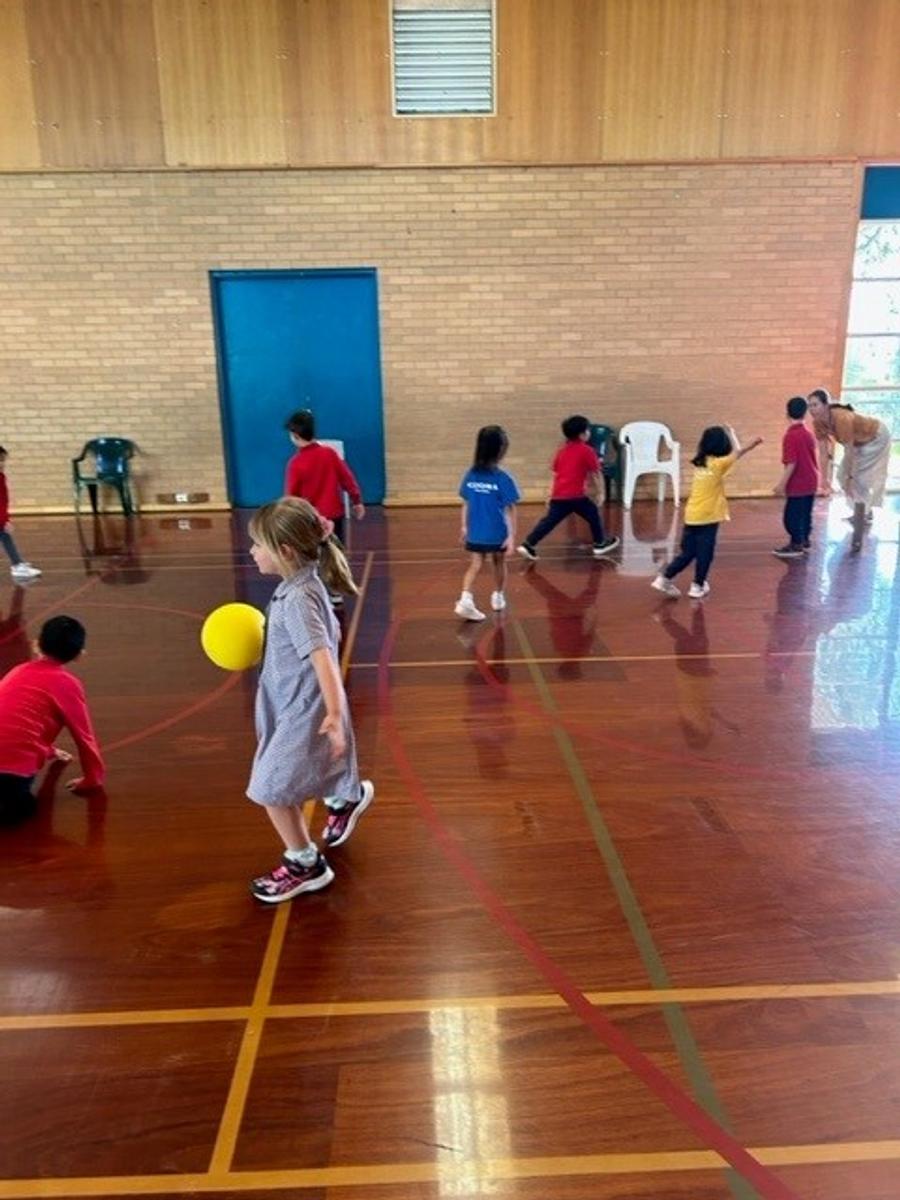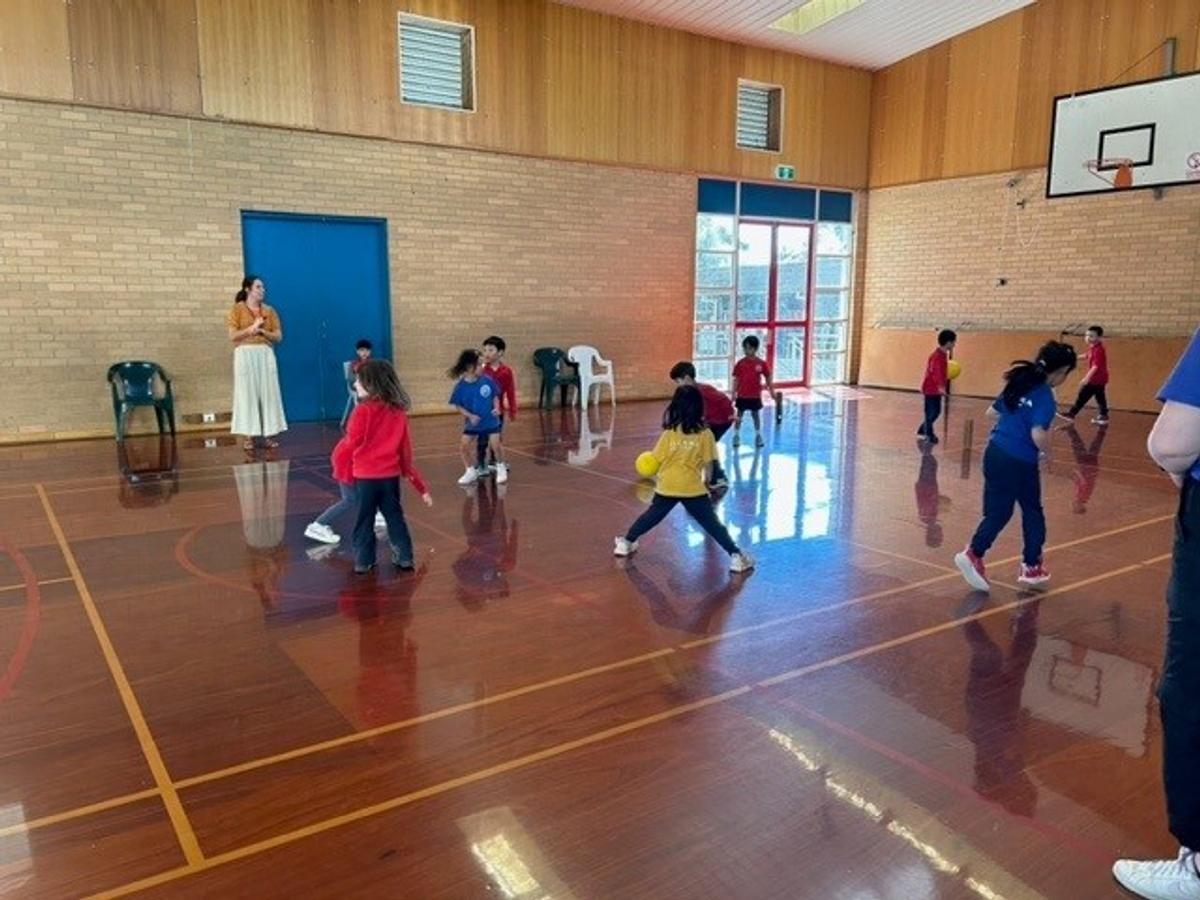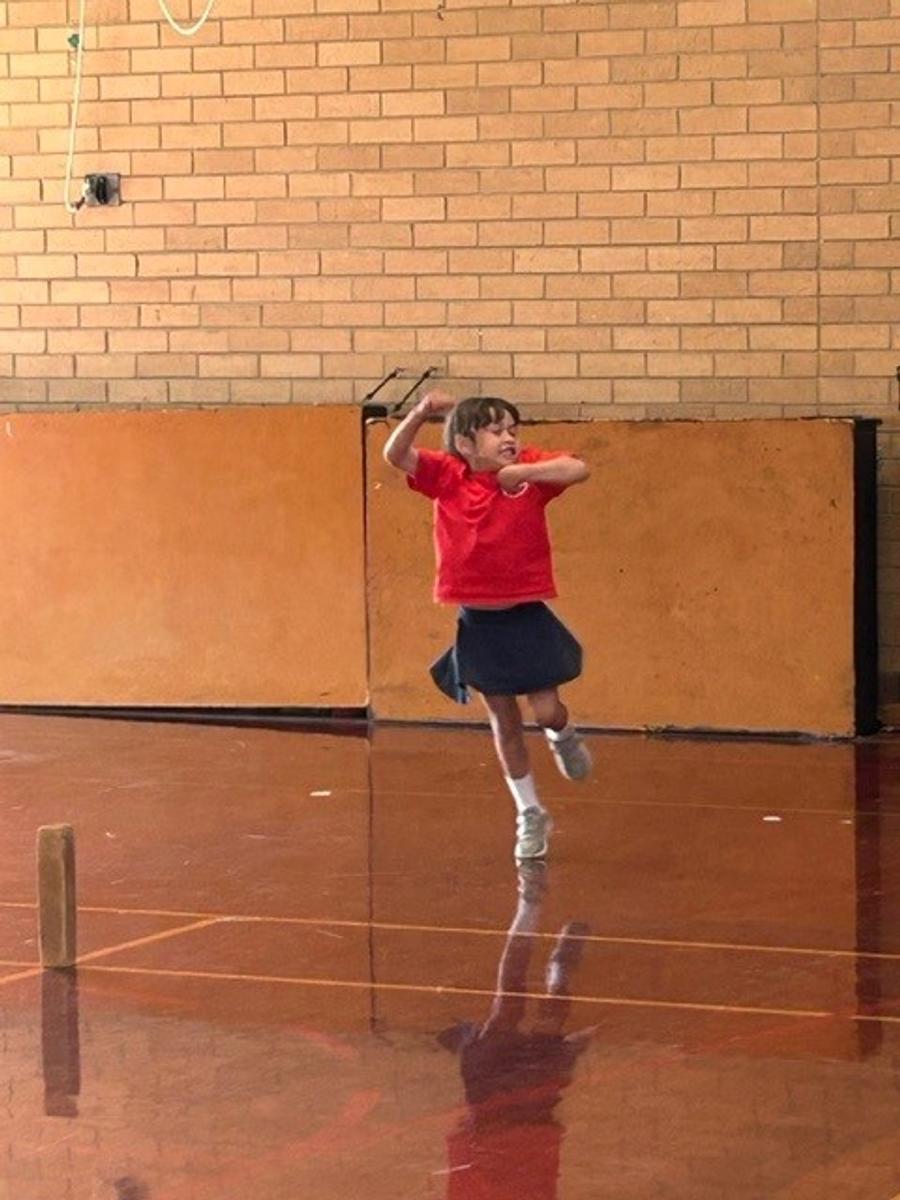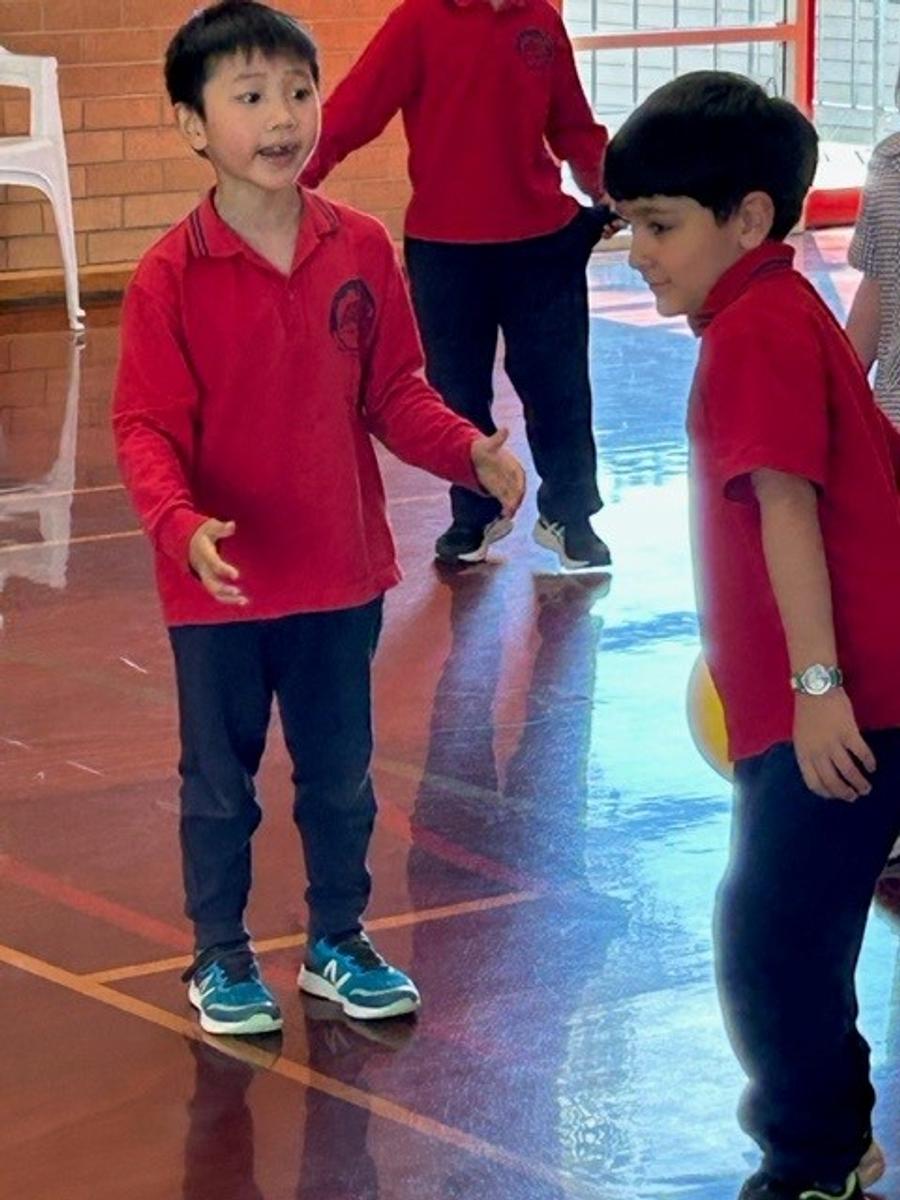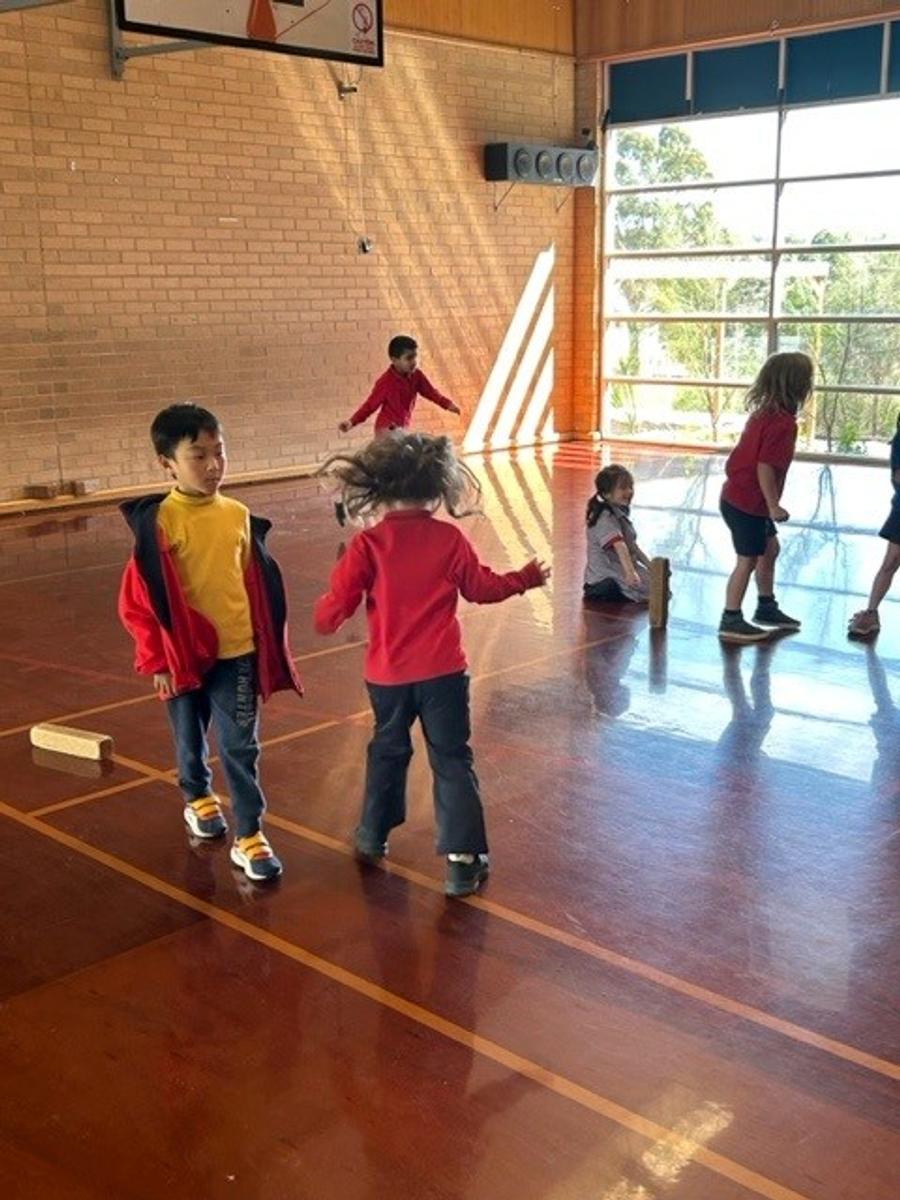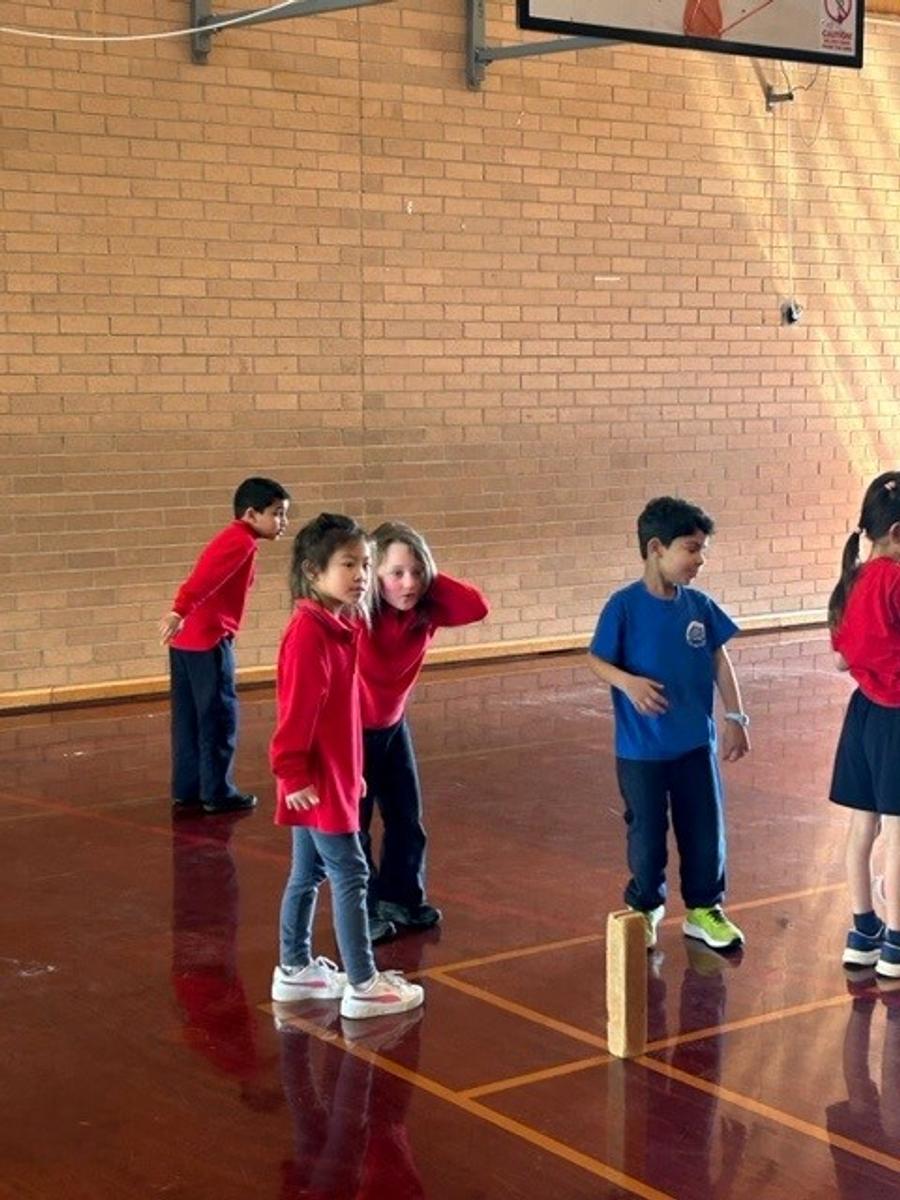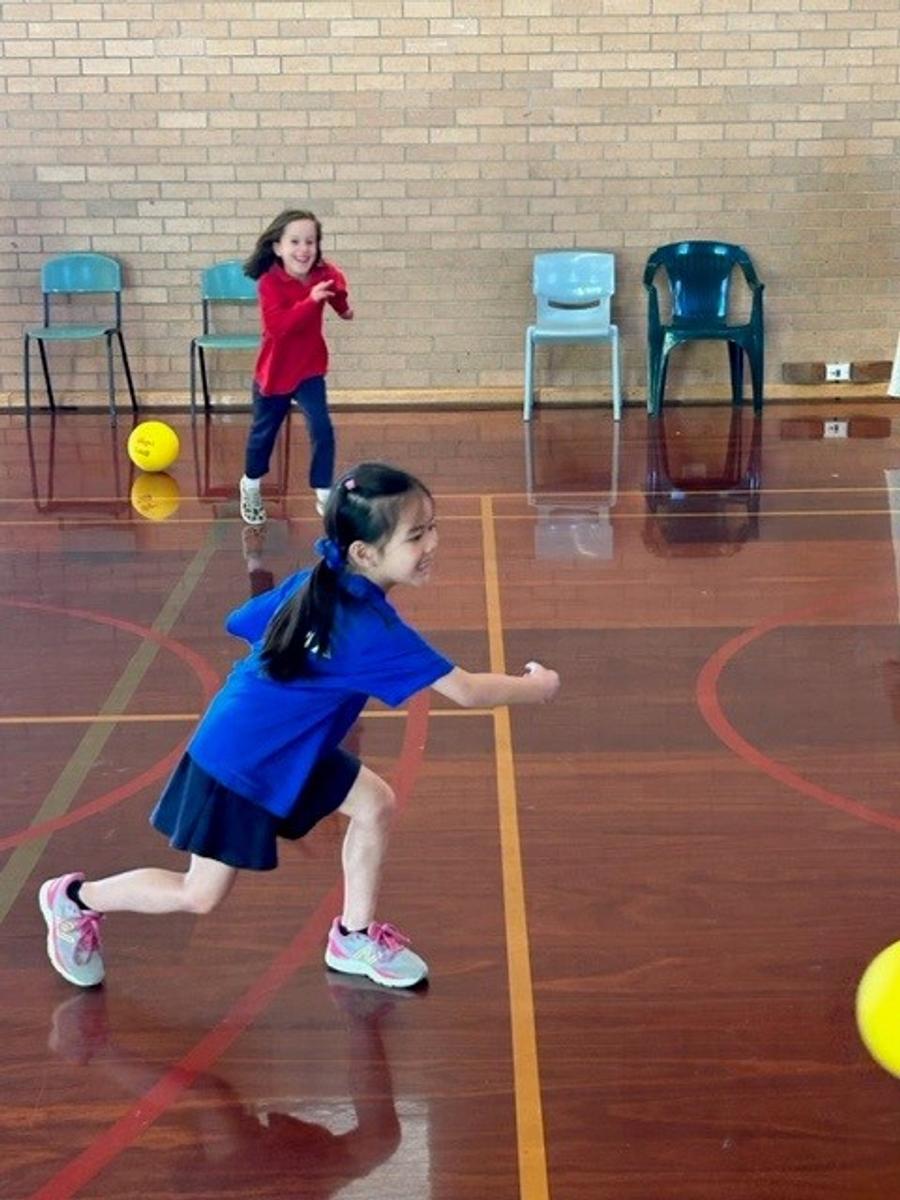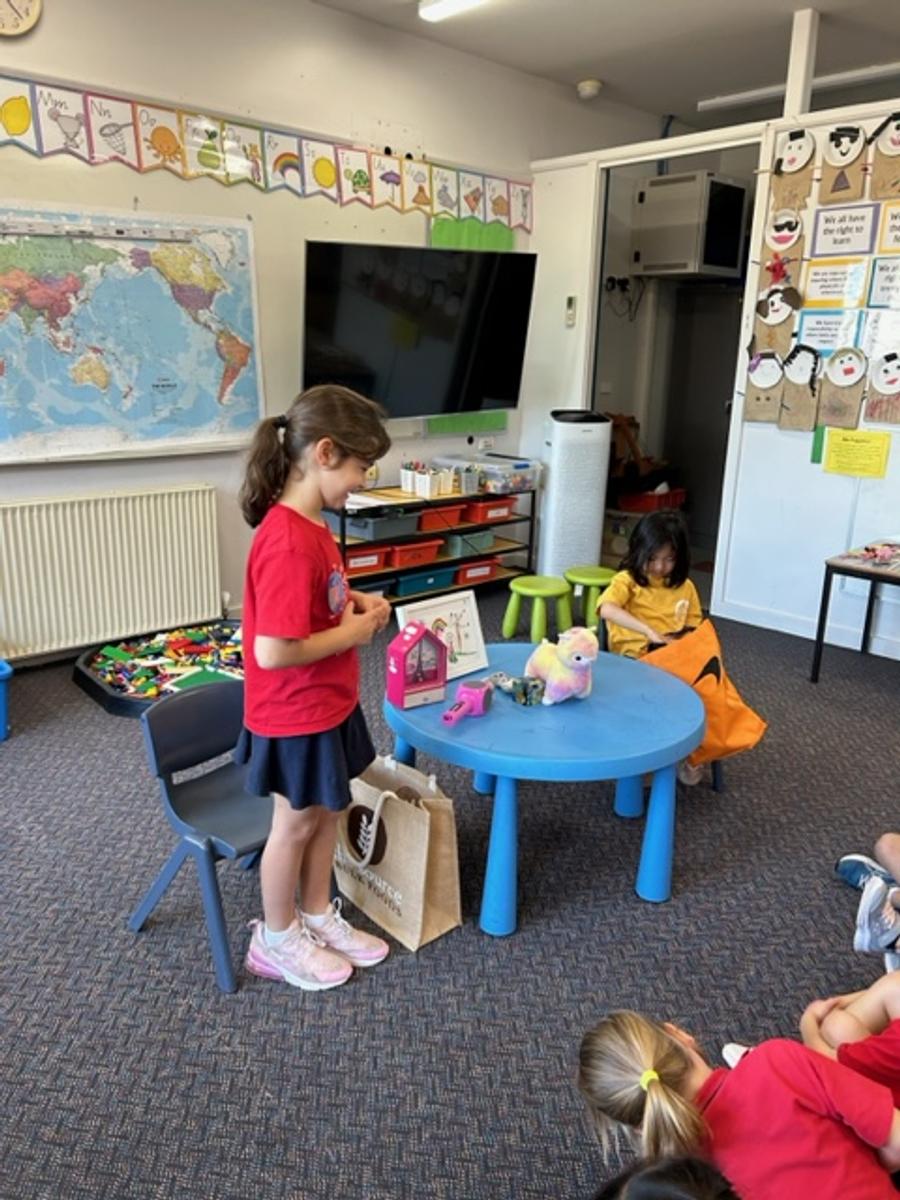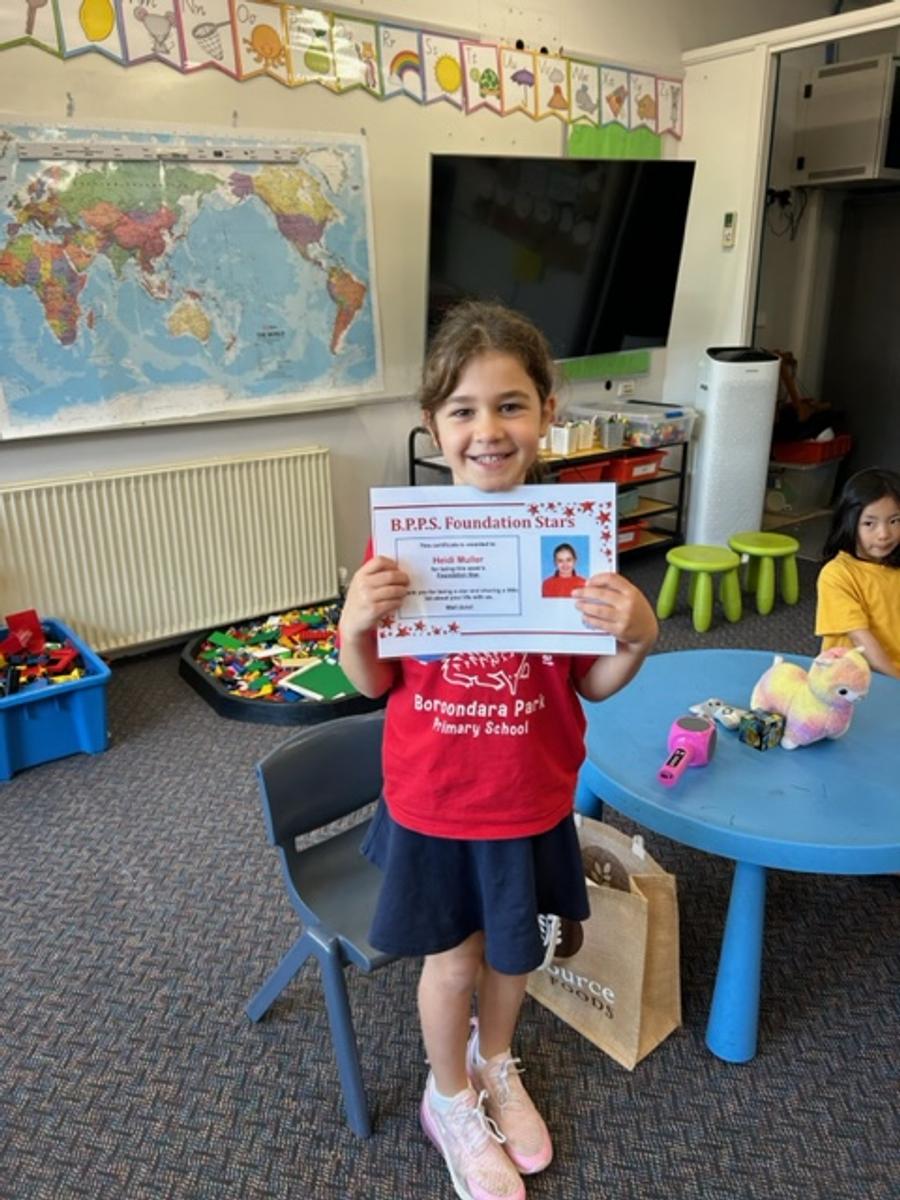Team Foundation News

Tinkering with Bee-bots
During the last couple of weeks, the Foundation students have been revising their knowledge of location, exploring different spaces within their classrooms and around the school, and using language to describe the position of a variety of objects.
Last week, the students were introduced to the Bee-Bots. Bee-bots are programmable floor robots that introduce some of the basic concepts of coding. Students were asked to apply their knowledge of directional language to program the Bee-Bots to follow a pathway of the students' creation.
Students were first given some time to 'tinker' with the Bee-bots, using the floor space in the classrooms to find out what the Bee Bots can do and to become familiar with how to program them. There was much excitement as the Bee Bots made their way around the classroom!
Students then worked in pairs and used classroom materials to build a simple obstacle course for their Bee Bots. They considered how they wanted their Bee Bots to move through the course and collaborated to make a class list of directional language, including terms such as 'forwards', 'backwards', 'between', 'around', 'towards', 'turn', 'right' and 'left'. Students were able to use this language to verbalise the path their Bee Bots took as they navigated around their obstacle course.
Wednesday Wrigglers - Team games
Every Wednesday afternoon in Term 4, the Foundation students have been introduced to team games. When children experience team games, they reap several benefits that will translate from playing the game to many other aspects of their lives. Here are a few of the ways students benefit from team sports.
1. Collaboration
Team sports are perfect for helping children to learn about the importance of collaboration. In the quest to succeed, each team member must work with the others. With each player potentially having different strengths and weaknesses, students learn to adapt their own play and work together. They also learn to share their emotions and help motivate each other.
2. Critical-thinking skills
Team sports are invaluable for developing a child’s critical-thinking skills. Problem-solving, strategising, analysing, observing, and creative thinking are all part of the strengths students will learn and develop. Whether it’s analysing which teammates are open for a pass, observing an opponent’s strength and working to outwit them, altering speed or footwork or figuring out the best angle to shoot from, students will learn and develop skills they can use not just with their team, but also in the classroom and in other areas of their lives.
3. Winning and losing together graciously
Sometimes you win, sometimes you lose, however, learning how to take any outcome and react to it appropriately is always important. When shaking hands and sharing comments with opponents such as “good game,” after a win or loss, students learn that everyone needs to be kind in any situation. After a loss, children will also come to learn that it’s not appropriate or kind to blame others and that they need to be supportive of everyone on their team. And when their team wins, they will learn through their own experiences of losses that it’s important to be empathetic towards the players on the other team.
4. Sport skill development
Students learn multiple new movement skills and techniques when they play these sporting games. They also learn from watching their teammates. It’s great to see children learning and improving their ability to throw, run, catch, and all the other movement skills so important to an active and healthy life. And it’s wonderful when students feel proud of their achievements.
5. Communication
Communication is key to ensure teams are working together effectively. Students will come to learn the importance of listening to both their teammates and teachers. They’ll also learn how to ensure their thoughts are heard. Sometimes communication is spoken: coaching chats in practice teach students about strategy, players can call out that they’ll be catching a ball, etc. And sometimes communication can take the unspoken form of a gesture indicating that a player is ready to catch a ball, etc. Being able to listen, to speak, and to make sure they’re being heard are all skills students will come to learn are so important for the success of their team.
And finally…
6. Fun
Students experience so much fun and enjoyment when they play these games with each other! Children definitely learn best when laughter is involved! At the end of each Wednesday Wrigglers session, teachers give out Good Sports awards house points to students who have demonstrated exemplary good sporting skills. These awards motivate students to work hard to try their best to demonstrate these important skills.
On Wednesday after school you could ask your child to share the game that they played and see if they can remember the rules of this game and what feelings they had while they played. You could also ask your child if they learnt anything from the game and what they enjoyed most about playing this activity.
We hope that in experiencing these team games, students will learn vital, real life skills that they can use throughout the rest of their lives.
Foundation Stars Term 4 - Weeks 2 and 3
In Week 2 our Foundation Stars were Envie (FKJ) and Ali (FSR) .
Envie proudly shared her personal show bag of goodies. Some of the special items that she shared were: a soft toy doll, which was given to Envie by her Grandma who lives in Vietnam, a paper lantern in the form of a fish and a special collection of Shopkins! These Shopkins toys had been carefully collected by Envie over a number of years. Envie was able to share what her favourite Shopkin toy was and why it was her favourite. Thank you Envie for presenting your interesting show bag to us all!
Ali was FSR's Foundation Star in Week 2. Ali also shared his personal show bag with all of the students. Ali had some very interesting items to share. Some of these were: a Transformer toy, a Lego truck that Ali constructed as well as an interesting sensory, stress toy that looked like a coloured snake filled with blue water. As well as being full of blue water it also had sparkling glitter paper and when you squeezed it, it would slide out of your hands like a slippery snake! The Foundation students got great delight in watching Ali squeeze the toy and watch it flip out of his hands! Well done Ali for entertaining us with your show bag items!
In Week 3 the Foundation Stars were: Heidi (FKJ) and Eliza (FSR).
We got great delight in listening to Heidi share her personal show bag with us all. In this bag of tricks, Heidi shared: a toy llaama called Sunset, a lovely music box from France and a carefully drawn picture in a white frame (drawn by Heidi when she was four years old!) Heidi proudly shared how she had drawn this lovely piece of artwork and explained how she had used coloured, glitter gems to make it look like snow was falling from the sky! What great creativity Heidi! Thank you for sharing these lovely show bag items with us all!
The final Foundation Star for Week 3 was Eliza (FSR). Eliza also chose to share her show bag items with us all. Some of the items inside Eliza's bag were: a Twilight Sparkle My Little Pony toy, a Rainbocorn soft toy that was half tiger and half unicorn and she also shared a fancy headband that she wears during special occasions. All the Foundation students noticed that Eliza chose to share two unicorn toys with us at this special sharing session. Golly Eliza you really must like unicorns! Well done Eliza for sharing this really interesting show bag!
Thank you again Foundation families for supporting your child to conduct these amazing presentations!
We also want to say a BIG thank you to any parent who was able to assist in anyway at last week's Swimming Program! Without your support we would not be able to run these programs so thank you once again!
We look forward to sharing more incredible learning from our Foundation students in our next newsletter!
Warm regards,
Team Foundation Teachers.
